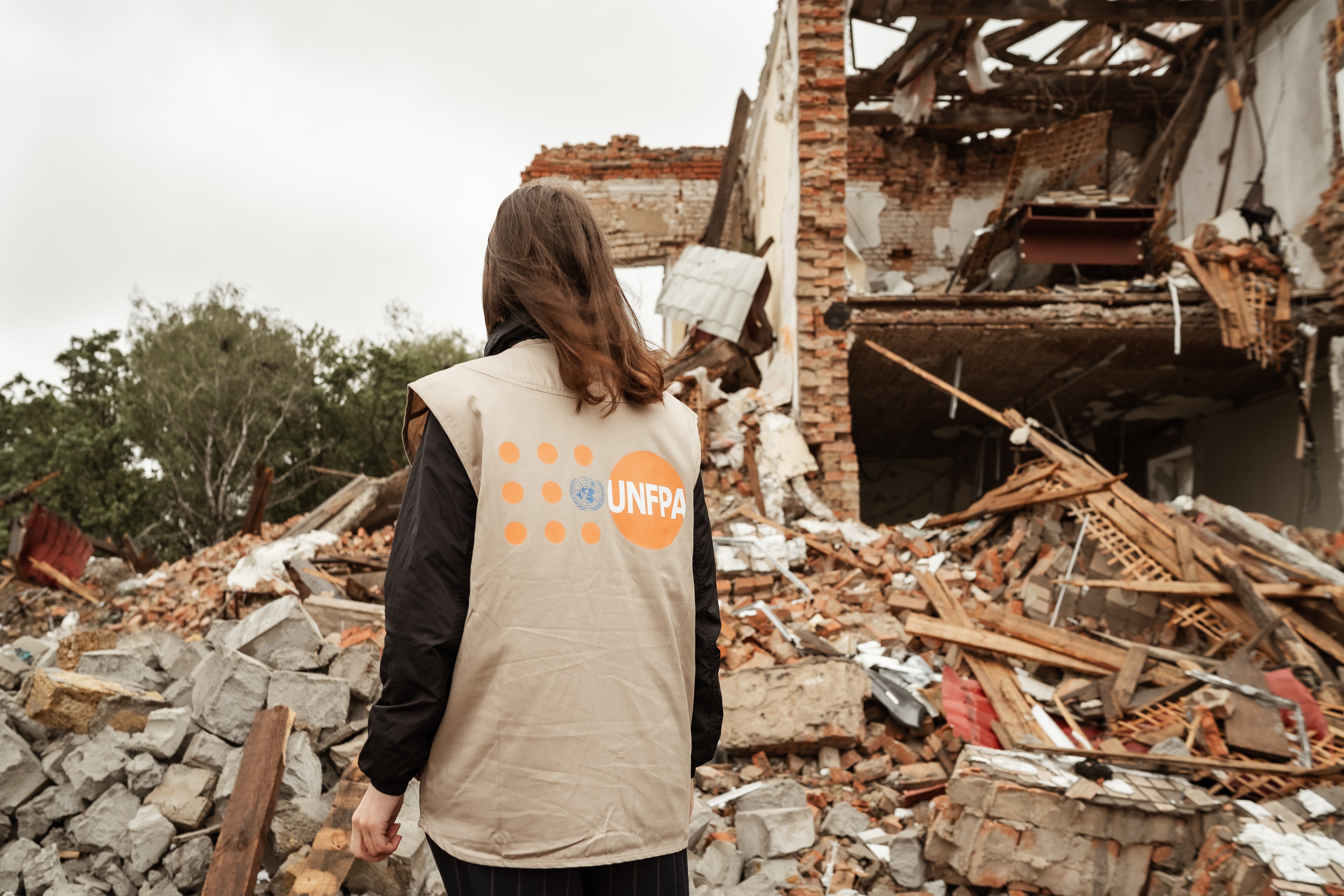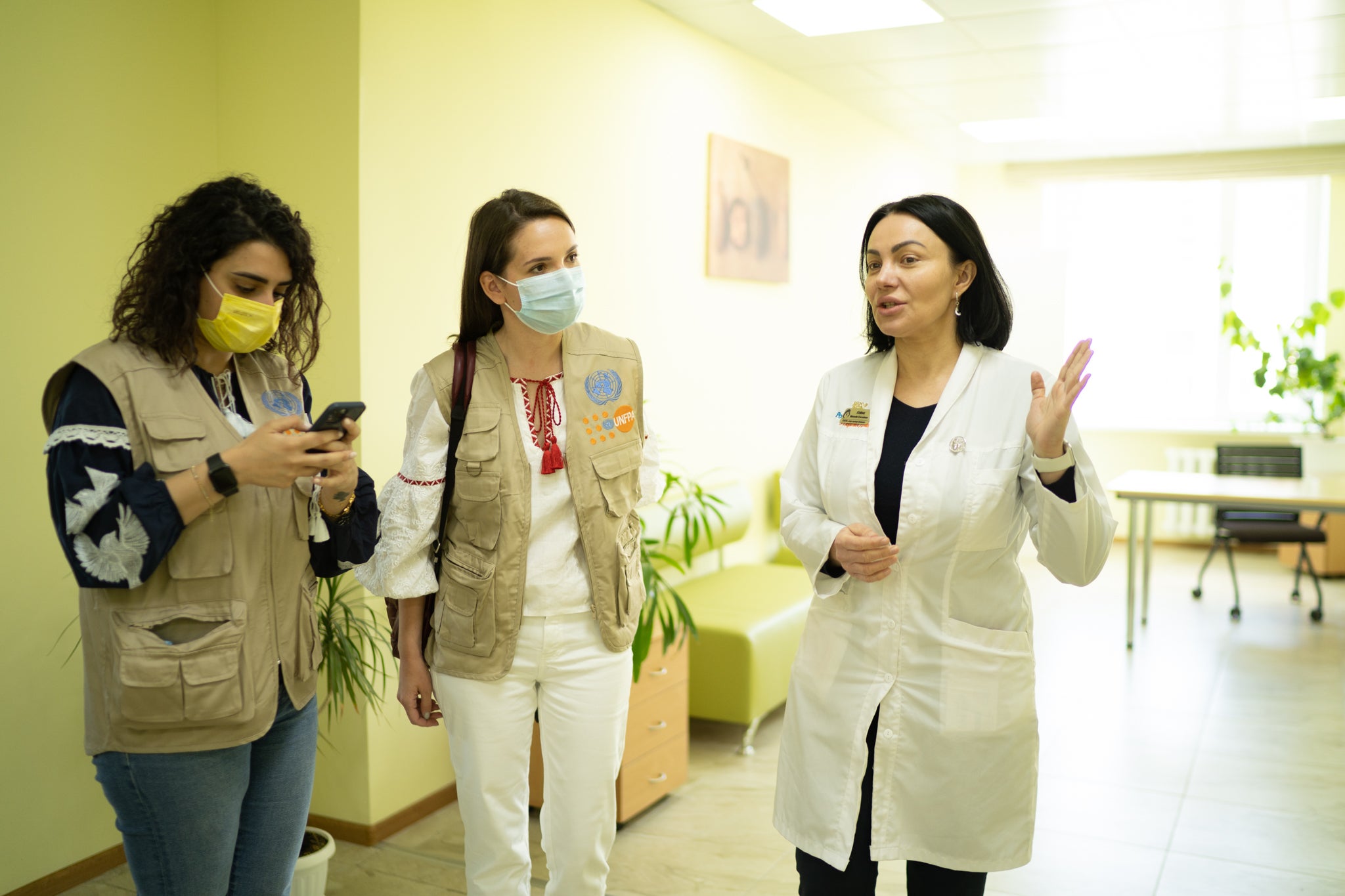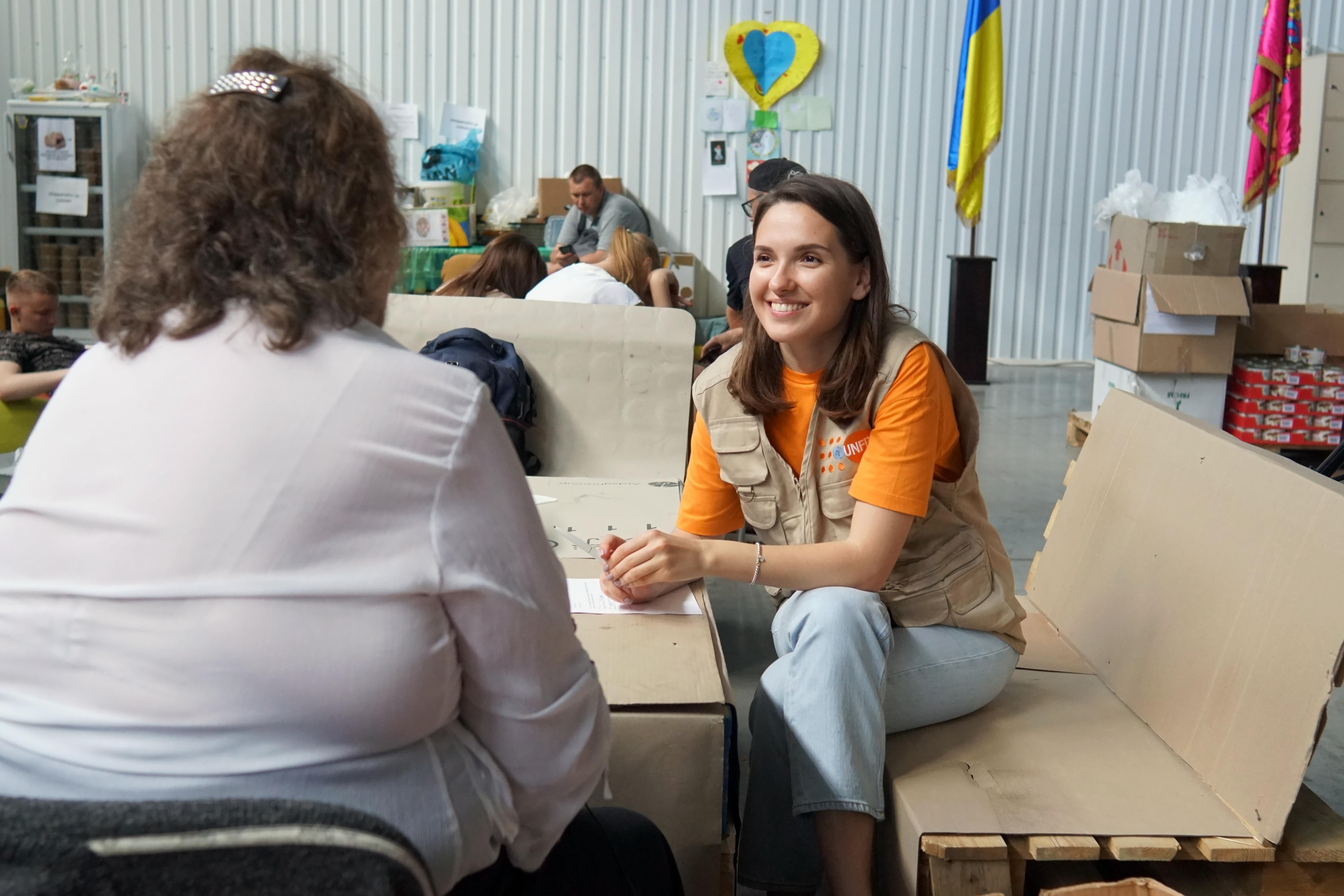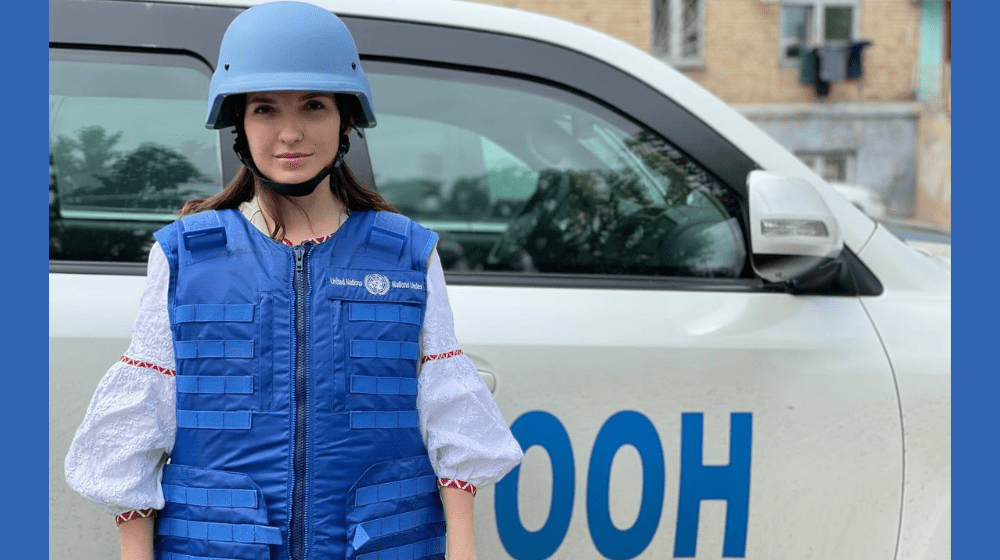Every Ukrainian will remember where they were on 24 February when they found out that war had begun. For me, I was in Kyiv working on a new campaign to raise awareness about how women can protect themselves from gender-based violence and the services and support available. This day will forever remain one of the gloomiest for all Ukrainians. Months have passed since the invasion, and while the seasons have changed, people in Ukraine can be heard saying: "It's summer outside, but while the war is going on, we still live in February."
It can be difficult to remember what our daily lives were like before the war. The boundaries between my personal and professional life at UNFPA, the United Nations sexual and reproductive health agency, in Ukraine have become more blurred over the past few months.
As a Communications Specialist, my role involves highlighting the impacts of the war on women and girls and giving a voice and platform to their needs and challenges, so that we can continue to protect their rights, including their right to give birth safely and with dignity and to live free from violence. In this regard, I feel a greater sense of duty now than ever before.
More than 12 million people, mostly women and girls, have been forced to flee their homes, their lives upended as they face an uncertain future. I too left my home in Kyiv, which miraculously has remained intact, as well as my parents and dog on the first day of the war. The next chance to see my family appeared only when summer came. All staff at UNFPA’s office in Ukraine found themselves facing the same reality – they fled their hometowns, together with their families, pets and some basic items, moving to safer locations in western regions.
In the rush to flee to safety, many of them took only basic personal belongings and documents. For example, one colleague took just two socks – odd ones as it transpired. But everyone brought their computers and everything necessary for work. As a humanitarian worker at the United Nations, we have to be ready to continue working for the people we support under any conditions. Women do not stop getting pregnant, giving birth or menstruating in times of crises, while risks to their health, safety and well-being often increase.

Attacks on health infrastructure have denied already vulernable people, including pregnant women, access to essential services.
Photo Credit: UNFPA/Serhii Tymifieiev
Before the war, UNFPA supported efforts to advance gender equality and women’s rights in Ukraine, strengthening women’s resilience and building their agency to make choices about their sexual and reproductive health. Our priorities shifted dramatically when the war began; our main focus now is to ensure that women can still access essential health services, including maternal health care, and supplies, such as contraceptives and menstrual hygiene products. We are, however, working in a challenging environment, one that has seen so much devastation and destruction.
At the start of the war, UNFPA estimated that there were around 265,000 pregnant women in Ukraine, so our first priority is to ensure they will be able to give birth safely. Many maternity hospitals and perinatal centres have been damaged, or forced to move their delivery rooms and wards to basements in areas where there is heavy shelling. In many cities, women do not have any access to medical care and are forced to give birth in makeshift shelters in basements and metro stations. Equipment, facilities and skilled and qualified health care providers are also in short supply.
I have visited several maternity hospitals since the start of the war where UNFPA has already delivered vast amounts of reproductive health equipment and medicines. Women told me that they have stopped watching the news, and as they wait to give birth – and hold their newborns in their arms – think instead about their hopes and dreams for the future. Doctors told me that the positive atmosphere in the hospital, in stark contrast to the fear and destruction that lies outside the facilities’ doors, is important and helps to reduce stress, which may lead to expectant mothers developing complications.
I recently had a conversation with the wife of a soldier, who was captured on the frontlines in Azovstal and has not been heard from for around a fortnight. She gave birth to their firstborn, alone, on one of the wards where UNFPA has delivered reproductive health supplies, including lifesaving maternal health medicines. She shared her pain and fear with me, but I was most inspired by her boundless hope that her husband will return soon to meet his newborn daughter.

Kyiv Oblast Perinatal Centre is one of many facilities that have received reproductive health supplies from UNFPA to continue the delivery of essential care for pregnant women and newnborns.
Photo Credit: UNFPA/Serhii Tymifieiev
I am inspired on a daily basis by people – both those who continue working, volunteering, doing everything possible, and those who were forced to flee the war, lost everything, but continue believing and hoping for peace. There is a wonderful power and resilience in Ukrainians.
Just last week, I was on another mission to cities that have received the largest number of evacuees from war-torn areas. In Zaporizhzhia, for example, I met a number of inspiring people, including a 32-year-old woman called Sasha, who despite a severe disability, was volunteering at a UNFPA-supported centre for displaced people. It is very difficult to buy fuel in Ukraine now, so moving around the city has become a real challenge for her, and many other people. Two taxi drivers were so moved by her example that they now take her daily from her home to the centre and back, and carry her inside. Once there she gets around in her wheelchair, doing whatever she can to help.
Another phenomenal woman I’ve recently met is a lady called Mrs Lyubov, who will turn 85 soon. On the first day of the war, she came to the centre and offered her help. Every day she opens and lines up thousands of bags, so that other volunteers can fill them with food and hygiene items ready for distribution. Such simple work, but strengthening and speeding up the process of getting supplies to people in need is absolutely vital in the current environment. These are the people who motivate me to continue working.

Sasha, is volunteering at a UNFPA-supported centre in Zaporizhzhia, ensuring vital supplies get to people in need.
Photo Credit: UNFPA/Vitalii Krasnoperov
UNFPA personnel are now working with local partners in all regions where safe access is possible. Our mission is to scale up the delivery of reproductive health services, including maternal health care, and respond to the medical and psychosocial needs of women and girls at risk of or experiencing violence. We have recently launched several support services, including psychosocial mobile teams that are working in 12 cities across the country, and an online system called Aurora, staffed by psychotherapists, social, medical and legal specialists, which women survivors of violence can access from anywhere inside and outside Ukraine.
Women and girls are facing enormous challenges in Ukraine, and UNFPA is committed to supporting efforts that protect their health, rights and dignity during the war and beyond. This is why I will stay in my country and continue to serve and tell the stories of the most vulnerable and voiceless amongst us.

UNFPA is responding to the unique needs of Ukraine’s older population who are cut off from support services.
Photo Credit: UNFPA/Vitalii Krasnoperov


